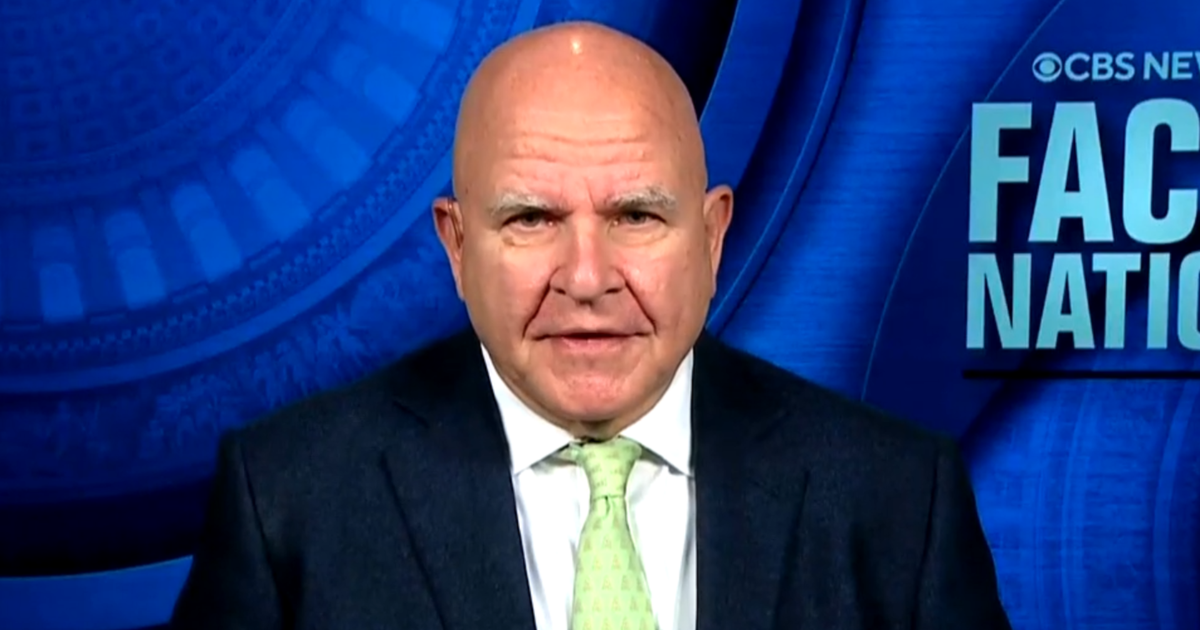CBS News
Malcolm Gladwell’s life has changed; he has not

On Tuesday, a new Malcolm Gladwell book comes out. And if history is any guide, it will be a bestseller. “They’re stories about ideas,” he said. “They have characters. They have plots. I’m usually trying to say something about the world.”
His first book, “The Tipping Point,” published in 2000, established the Gladwell recipe: he explores a theme through anecdotes and little-known scientific studies. “‘Tipping Point’ was about the epidemic as an incredibly useful way of understanding how ideas move through society,” Gladwell said. “And epidemics have rules. Let’s learn the rules, right?”
His seven New York Times bestsellers have sold 23 million copies in North America alone. His fee for corporate speeches is $350,000. His fans have downloaded a quarter-billion episodes of his podcast, “Revisionist History,” and he founded a company called Pushkin Industries to produce it.
CBS News
In other words, Gladwell has come a long way from the small Canadian town where he grew up, son of a British father and a Jamaican mother, whom he describes as “subversive,” someone who would write notes to excuse her son from class with a blank space. “I would just fill out the date,” said the man who skipped a lot of school.
He attended the University of Toronto, but his best education was the ten years he worked for the Washington Post. “I knew nothing about newspapers,” he said. “I was so raw. I was 23, I think, or 24. Bob Woodward was two rows away from me. I learned at the feet of the greatest journalists of my generation.”
In 1996, Gladwell joined The New Yorker. He wrote about why, in the 1990s, New York’s crime rate plummeted in an article called, “The Tipping Point.” A book followed. It introduced a recurring Gladwellian theme: hidden patterns in the way the world works.
He’s a world-class contrarian, about college (“You should never go to the best institution you get into, never; go to your second or your third choice. Go to the place where you’re guaranteed to be in the top part of your class”); about working from home (“It’s not in your best interest to work at home. … If you’re just sitting in your pajamas in your bedroom, is that the work life you want to live, right? Don’t you want to feel part of something?”); about football (“I think the sport is a moral abomination”).
Gladwell says he enjoys being provocative: “Of course!” he said. “I like poking the bear. I mean, journalists should poke the bear.”
CBS News
Gladwell’s fans love his storytelling, and the A-ha! moments they bring. His critics, on the other hand, have described his writing as “generalizations that are banal, obtuse, or flat wrong,” and “simple, vacuous truths [dressed] up with flowery language.” “I’m with the idea that not everyone’s gonna like my work,” Gladwell said. “100% of people don’t like anything.”
In a 2021 “Sunday Morning” interview, Gladwell said, “I would rather be interesting than correct.” He called that “an overly provocative way of saying things! No, I think what I meant was, if I turn out not to be right, I’m not devastated. I accept that as the price of doing business.”
Gladwell often turns his mistakes into new chapters or podcast episodes. In “The Tipping Point,” he explained that New York’s crime drop was the result of “broken windows policing.” As he described it, “Little crimes were tipping points for big crimes.” But that philosophy led to New York’s policy of “stop and frisk.”
“Doing 700,000 police stops a year of young Black and Hispanic men is deeply problematic,” Gladwell said. “We were wrong. I was part of that. I’m sorry.”
Which brings us to the new book, “Revenge of the Tipping Point.” “The original ‘Tipping Point’ is a very optimistic, rosy book about the possibilities for using the laws of epidemics to promote positive social change,” he said. “In the last 25 years, I spent a lot of time thinking about the other side of that problem, which is, what happens when people use the laws of epidemics in ways that are malicious or damaging or self-interested?”
Little, Brown & Co.
The book’s stories range from topics as obscure as cheetah reproduction, to stories as big as the Holocaust. He writes that almost nobody talked about the Holocaust, or even called it that, until NBC aired a miniseries called “Holocaust” in 1978. “And what changed happened like [snaps fingers]. I mean, it was just there was a tipping point in our understanding of the Holocaust,” he said.
This book arrives at a tipping point in Gladwell’s own life. In a span of five years, he got engaged, had two children, turned 61, and moved from Manhattan to pastoral Hudson, New York. “It’s a lot to handle. There isn’t a single person who ever lived whose parents did not say, ‘This is a lot!'” he laughed. “I have become the person that, you know, I once despised, and nothing makes me happier.”
He also despises Ivy League colleges, accusing them of prioritizing their own reputations over focusing on their students.
Has parenthood affected his outlook on any of the things that he’s written about before? “Well, it’s prepared me for the possibility that I will be a massive hypocrite!” Gladwell laughed. “So, you know, it’s one thing to write about what you should do with your kids when you don’t have them.”
For all his success, Malcolm Gladwell maintains that nothing has changed in his approach, his work ethic, or his contrarianism. “It hasn’t changed what I do,” he said. “I don’t farm out my research; I still go on reporting trips. It hasn’t gotten old. In fact, my great regret is I don’t have time to do more.”
READ AN EXCERPT: “Revenge of the Tipping Point” by Malcolm Gladwell
For more info:
Story produced by Wonbo Woo. Editor: Remington Korper.
CBS News
Couple charged for allegedly stealing $1 million from Lululemon in convoluted retail theft scheme

A couple from Connecticut faces charges for allegedly taking part in an intricate retail theft operation targeting the apparel company Lululemon that may have amounted to $1 million worth of stolen items, according to a criminal complaint.
The couple, Jadion Anthony Richards, 44, and Akwele Nickeisha Lawes-Richards, 45, were arrested Nov. 14 in Woodbury, Minnesota, a suburb of Minneapolis-St. Paul. Richards and Lawes-Richards have been charged with one count each of organized retail theft, which is a felony, the Ramsey County Attorney’s Office said. They are from Danbury, Connecticut.
The alleged operation impacted Lululemon stores in multiple states, including Minnesota.
“Because of the outstanding work of the Roseville Police investigators — including their new Retail Crime Unit — as well as other law enforcement agencies, these individuals accused of this massive retail theft operation have been caught,” a spokesperson for the attorney’s office said in a statement on Nov. 18. “We will do everything in our power to hold these defendants accountable and continue to work with our law enforcement partners and retail merchants to put a stop to retail theft in our community.”
Both Richards and Lawes-Richards have posted bond as of Sunday and agreed to the terms of a court-ordered conditional release, according to the county attorney. For Richards, the court had set bail at $100,000 with conditional release, including weekly check-ins, or $600,000 with unconditional release. For Lawes-Richards, bail was set at $30,000 with conditional release and weekly check-ins or $200,000 with unconditional release. They are scheduled to appear again in court Dec. 16.
Prosecutors had asked for $1 million bond to be placed on each half of the couple, the attorney’s office said.
Richards and Lawes-Richards are accused by authorities of orchestrating a convoluted retail theft scheme that dates back to at least September. Their joint arrests came one day after the couple allegedly set off store alarms while trying to leave a Lululemon in Roseville, Minnesota, and an organized retail crime investigator, identified in charging documents by the initials R.P., recognized them.
The couple were allowed to leave the Roseville store. But the investigator later told an officer who responded to the incident that Richards and Lawes-Richards were seasoned shoplifters, who apparently stole close to $5,000 worth of Lululemon items just that day and were potentially “responsible for hundreds of thousands of dollars in loss to the store across the country,” according to the complaint. That number was eventually estimated by an investigator for the brand to be even higher, with the criminal complaint placing it at as much as $1 million.
Richards and Lawes-Richards allegedly involved other individuals in their shoplifting pursuits, but none were identified by name in the complaint. Authorities said they were able to successfully pull off the thefts by distracting store employees and later committing fraudulent returns with the stolen items at different Lululemon stores.
“Between October 29, 2024 and October 30, 2024, RP documented eight theft incidents in Colorado involving Richards and Lawes-Richards and an unidentified woman,” authorities wrote in the complaint, describing an example of how the operation would allegedly unfold.
“The group worked together using specific organized retail crime tactics such as blocking and distraction of associates to commit large thefts,” the complaint said. “They selected coats and jackets and held them up as if they were looking at them in a manner that blocked the view of staff and other guests while they selected and concealed items. They removed security sensors using a tool of some sort at multiple stores.”
CBS News contacted Lululemon for comment but did not receive an immediate reply.
CBS News
Former Trump national security adviser says next couple months are “really critical” for Ukraine

Washington — Lt. Gen. H.R. McMaster, a former national security adviser to Donald Trump, said Sunday that the upcoming months will be “really critical” in determining the “next phase” of the war in Ukraine as the president-elect is expected to work to force a negotiated settlement when he enters office.
McMaster, a CBS News contributor, said on “Face the Nation with Margaret Brennan” that Russia and Ukraine are both incentivized to make “as many gains on the battlefield as they can before the new Trump administration comes in” as the two countries seek leverage in negotiations.
With an eye toward strengthening Ukraine’s standing before President-elect Donald Trump returns to office in the new year, the Biden administration agreed in recent days to provide anti-personnel land mines for use, while lifting restrictions on Ukraine’s use of U.S.-made longer range missiles to strike within Russian territory. The moves come as Ukraine marked more than 1,000 days since Russia’s invasion in February 2022.
Meanwhile, many of Trump’s key selection for top posts in his administration — Rep. Mike Waltz for national security adviser and Sens. Marco Rubio for secretary of state and JD Vance for Vice President — haven’t been supportive of providing continued assistance to Ukraine, or have advocated for a negotiated end to the war.
CBS News
McMaster said the dynamic is “a real problem” and delivers a “psychological blow to the Ukrainians.”
“Ukrainians are struggling to generate the manpower that they need and to sustain their defensive efforts, and it’s important that they get the weapons they need and the training that they need, but also they have to have the confidence that they can prevail,” he said. “And any sort of messages that we might reduce our aid are quite damaging to them from a moral perspective.”
McMaster said he’s hopeful that Trump’s picks, and the president-elect himself, will “begin to see the quite obvious connections between the war in Ukraine and this axis of aggressors that are doing everything they can to tear down the existing international order.” He cited the North Korean soldiers fighting on European soil in the first major war in Europe since World War II, the efforts China is taking to “sustain Russia’s war-making machine,” and the drones and missiles Iran has provided as part of the broader picture.
“So I think what’s happened is so many people have taken such a myopic view of Ukraine, and they’ve misunderstood Putin’s intentions and how consequential the war is to our interests across the world,” McMaster said.
On Trump’s selections for top national security and defense posts, McMaster stressed the importance of the Senate’s advice and consent role in making sure “the best people are in those positions.”
McMaster outlined that based on his experience, Trump listens to advice and learns from those around him. And he argued that the nominees for director of national intelligence and defense secretary should be asked key questions like how they will “reconcile peace through strength,” and what they think “motivates, drives and constrains” Russian President Vladimir Putin.
Trump has tapped former Rep. Tulsi Gabbard to be director of national intelligence, who has been criticized for her views on Russia and other U.S. adversaries. McMaster said Sunday that Gabbard has a “fundamental misunderstanding” about what motivates Putin.
More broadly, McMaster said he “can’t understand” the Republicans who “tend to parrot Vladimir Putin’s talking points,” saying “they’ve got to disabuse themselves of this strange affection for Vladimir Putin.”
Meanwhile, when asked about Trump’s recent selection of Sebastian Gorka as senior director for counterterrorism and deputy assistant to the president, McMaster said he doesn’t think Gorka is a good person to advise the president-elect on national security. But he noted that “the president, others who are working with him, will probably determine that pretty quickly.”
CBS News
Sen. Van Hollen says Biden is “not fully complying with American law” on Israeli arms shipments

Watch CBS News
Be the first to know
Get browser notifications for breaking news, live events, and exclusive reporting.







